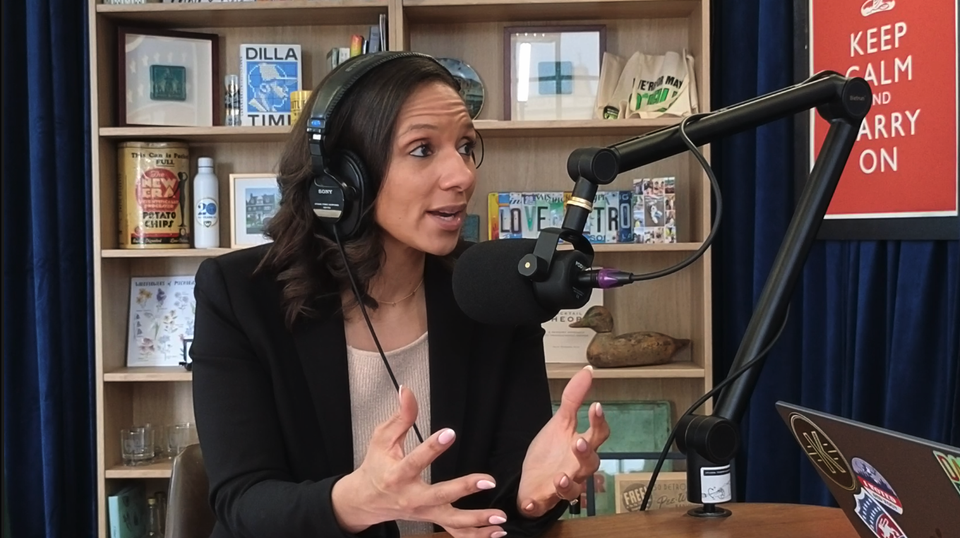Startup Weekend is like no other event or competition. It compresses many of the key aspects of a startup into 2.5 days. You pitch an idea, lobby for that idea, recruit or join a team, validate your idea, talk to potential customers, build your technology, and at the end of it all, present what you’ve accomplished.
Here’s an account of how Startup Weekend Detroit 2013 went for me:
First Night, Friday:
Pitching gives you the chance to express an idea in 60 seconds. Everyone should pitch an idea … even if you don’t think you want to pitch, you should pitch. That’s the only regret I had from my first Startup Weekend. The main rule is that you have to pitch something that you haven’t worked on before, which means this can’t be something you have already worked on substantially. It’s supposed to be just an idea at this point.
After everyone who wants to pitch gets their chance, each Startup Weekend participant is given several sticky notes to vote for the ideas they want to see happen. You can cast one, some or all of your votes to the idea or ideas you believe in. In this fun little exercise, you stand by your large piece of paper with your idea on it and try to solicit votes or you walk around with your votes and get to be lobbied and pitched by the various team leaders. Some people come up to you and you get a chance to explain further and make your case for your idea. Other participants don’t need convincing and just walk right up and cast their vote without needing a further explanation.
Some ideas and their leaders choose to merge with other teams that are similar or ideas that they believe stronger in than their own. After all the votes are cast, they are tallied and the top 10-20 teams are selected. If you pitched an idea but didn’t get enough votes, you are still encouraged to join a team that will have you as a member.
Each idea’s team leader has to then move on to what I call the recruitment part of Startup Weekend where you go around the room, pitch your idea’s vision and convince other people to join your team. If you aren’t a developer, you’ll probably need developers, perhaps even a mobile developer, or you may need a graphic designer, marketing person, or business person. This part really is like a miniature version of a startup; you need to convince talented people with other opportunities to choose to spend their weekend (and maybe more) with your team. As the leader it is your job to convince others to join your team. If you’re not leading a team, you should pick an interesting idea or a team that looks like it would be good to work with for the next couple of days.
At this point, night one is basically over and, after initially meeting the other team members, many teams break off and head to a bar to discuss further and make plans for the next day before heading home.

Day Two, Saturday:
The day starts at 9 a.m. and the teams get to work planning their day. A set of coaches float around to the different teams to help them with their business model, technology design and development, and to help challenge any assumptions they might be making. These coaches have experienced Startup Weekend before and are usually working at their own startup. Teams work all day on validating their assumptions, talking to prospective customers, getting their online presence setup and marketing it, developing their business model and even getting customers to pay for what they are selling. Paying customers, even at this early stage, are the surest sign that a startup is on to something and is looked highly upon by the Startup Weekend judges.
Throughout Startup Weekend there are also breaks for speakers to give quick talks that can be inspiring or otherwise useful. These speakers are usually from the local startup community.
Day Two can go late but most teams decide to wrap up at a reasonable time and resume Sunday morning at, you guessed it, 9 a.m.

Day Three, Sunday:
Sunday is spent finalizing their technology and preparing a brief presentation to present to the judges while the rest of the Startup Weekend participants look on. After each presentation, the judges ask the team questions. Once the presentations are over, the judges deliberate and choose the top teams. While the judges deliberate, the participants vote on which startup is their favorite and a “People’s Choice” winner is declared.
The judges return and announce the top teams. The winner receives prizes and the top teams have a chance to compete in the Global Startup Battle against the other cities around the world where Startup Weekend is happening.
Who is Startup Weekend for?
Everyone who has a mobile app idea, business idea, or just want to be contribute to a team that could build something amazing. Everyone is welcome. In 2013, a team led by women took the Startup Weekend Detroit crown. If your business or industry has a problem that is not being solved or the current solutions are terrible, you are especially encouraged to attend and participate. Who better to solve a problem than someone who has deep experience in that business or industry?
People with all skills are welcome: Marketing, Sales, Coding, Graphic Design, to name a few. Students get a discount if they purchase a student ticket and show their student ID – all ages are encouraged to attend!
When Is it?
Friday, Nov. 14, 2014 6 p.m. through Sunday, Nov. 16, 9 p.m.
Find out details here, and register (it does cost about $99 if you get an early bird ticket)
http://www.up.co/communities/usa/detroit/startup–weekend/4707
Ed. Note: Since Startup Weekend Detroit 2013, Scott Kloustin has continued to work on his startup RoboTeleCop, an app and service that lets you use the legal system to fight back against telemarketers and get paid in the process. He says RoboTeleCop wouldn’t have happened without the “kick in the pants” that is Startup Weekend and the lasting connections made there.













